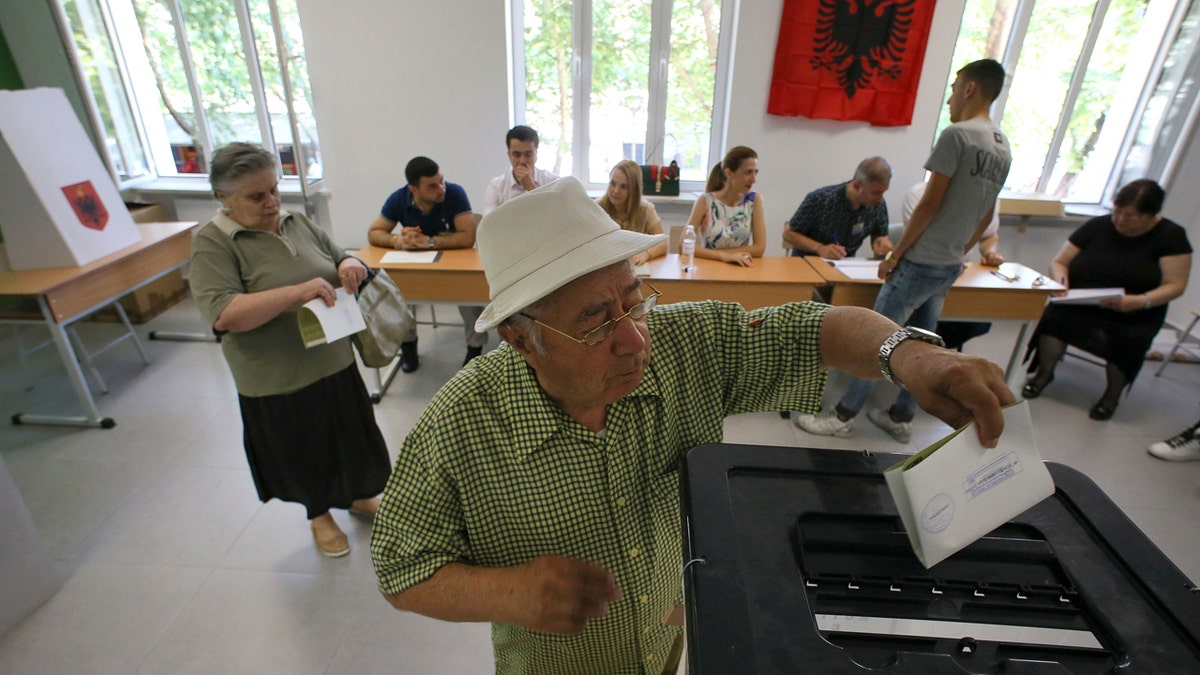
An Albanian man casts his ballot at a polling station in Tirana, Sunday, June 25, 2017. (AP)
TIRANA, Albania – Albanians were voting Sunday in a general election that follows a landmark agreement between the country's two biggest political parties to look past their bitter differences and back efforts for Albania to eventually join the European Union.
Holding a free and fair election is key to launching EU membership talks for the nation of 2.9 million, which is already a NATO member. After earning EU candidate status in 2014, Tirana has struggled to pass important reforms vital for its bid to advance to EU — namely deeply reforming its corrupted justice system.
Eighteen political parties are running for 140 seats in parliament in Sunday's vote. The main contenders are the Socialist Party led by Prime Minister Edi Rama and the opposition Democratic Party of Lulzim Basha.
An agreement reached in May ended the three-month parliamentary boycott by the Democrats, who claimed that voting was open to manipulation. The election date was delayed a week and Rama's Socialists promised greater oversight on election transparency.
All main parties campaigned on a reform agenda, pledging faster economic growth, pay hikes and lower unemployment, which stands at about 14 percent.
Some 6,000 police officers were on duty for election security, while more 300 international observers came to monitor the vote.
On Sunday, Albanians also celebrated Eid al-Fitr, the end of the fasting month of Ramadan. In the early morning, thousands of Muslim believers said prayers at the recently-renovated Skanderbeg Square in the capital of Tirana.
The western city of Kavaja was also holding a mayoral election that had been postponed from May because of fears of politically fueled clashes.
Preliminary results from the vote are expected Monday.




















